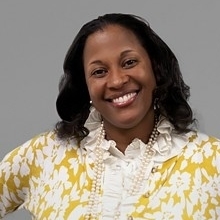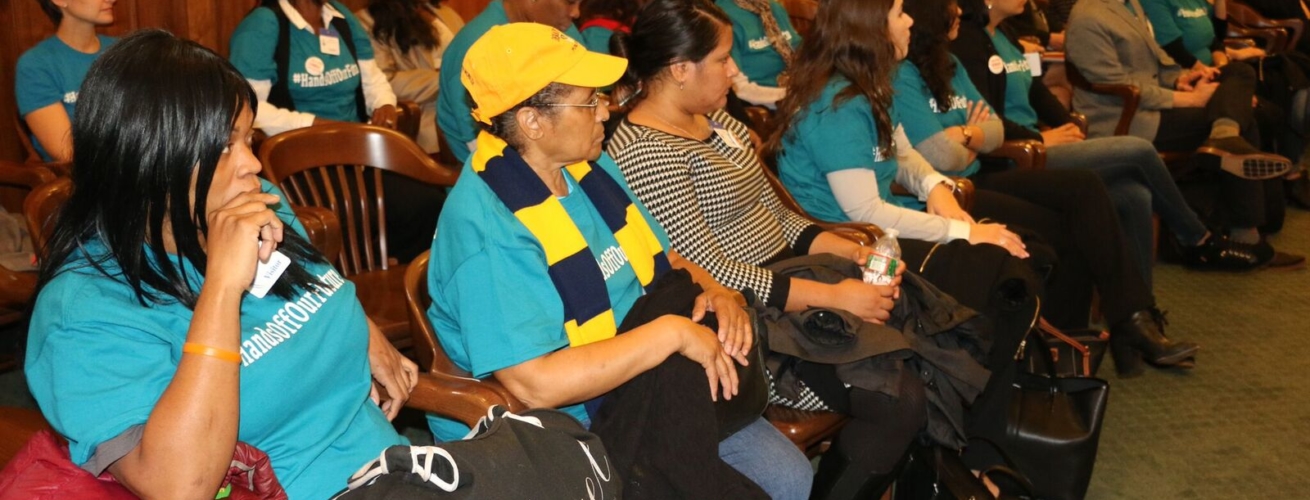This is about children, not politics.
I am one of the lucky ones whose family had the financial means to choose a better school option for their children. But tens of thousands of families across New Jersey don’t have those resources, and instead look to state and local legislators to open the doors of opportunity for their children.
We cannot let them down.
My family comes from Willingboro, New Jersey, a working-class town in Burlington County with mediocre schools. My identical twin sister Mashea and I started kindergarten in our neighborhood elementary school, not because it was my parents’ choice, but because our zip code put us there.
Mashea and I promptly “failed” kindergarten. Administrators recommended that we both be placed in special education classes because, my parents were told, we were academically unequipped to handle mainstream classrooms. Instead, my parents made the financially burdensome decision to enroll us in a local parochial school.
So when I participated in Parent Lobby Day on Monday at the New Jersey State House in Trenton, it was with a clear understanding of what is at stake for families who are zip-coded into failing schools.
Like my parents, many of the 150 parents who attended from Camden, Newark, Atlantic City, Trenton, Plainfield, Union and Jersey City don’t have the financial means to make the choice that my parents did. Their choices have to be free and public, and that means either traditional schools or charter schools.
Unfortunately, much of the conversation around expanding access to high-quality education has deteriorated into an “us vs. them” narrative that pits traditional schools and public charter schools against each other. It completely misses the point.
When legislators or lobbying groups talk about a “charter moratorium” and parents being “brainwashed” by charter advocates, they are missing the point as well. It’s not about a public school’s governance.
It’s not about a school’s address. It’s not about a school’s proximity. It’s about quality. And it’s about results.
And that’s what parents told legislators in 30 meetings on Monday. These parents want the same things for their children that lawmakers want for their own: access to good schools that adequately prepare students for college and careers. Sometimes, especially if you live in cities such as Newark, Camden or Trenton, these desires will steer you towards independent charters. As such, they are part of the solution to educational equity, not part of the problem.
Just look at this year’s universal enrollment period in Newark—75 percent of the 13,616 applicants chose schools outside their neighborhoods. In fact, 42 percent of those parents listed their first choice as a charter school, far more than could be served by the limited seats available. That’s why Camden community members—parents, residents, traditional and alternative school leaders—joined together to create a parent-friendly universal enrollment process.
“Parents know their children best,” noted Camden Mayor Dana L. Redd, “and they deserve support in making a well-informed decision about which school is best for their child.”
I’m now a resident of Camden, where Superintendent Paymon Rouhanifard’s “Camden Commitment” promises to improve education outcomes by expanding access to high-quality public education options. This strategic plan notes:
[Camden Public School students] must have access to good schools. Whether those schools are organized traditionally, or as public charter schools, or as some hybrid of the two is of little concern to anyone who needs them. Children are not thinking about how their school’s governance is organized; nor are parents who need a better option.
We should all be in this together, regardless of system of governance, and we should all be committed to dismantling the “us vs. them” narrative inherent in poorly conceived proposals like a charter school moratorium.
This is about children, not politics.
Maybe the 150 parents who went to Trenton on Monday are in fact “brainwashed.”
Brainwashed into believing they have the right to decide what school options are best for their children.
Brainwashed into thinking that their children can achieve at higher levels.
Brainwashed to seek out schools that truly prepare their children for college and careers.
If that’s the case, we could afford to have more parents brainwashed and demanding great schools. No one is calling the suburban parents who send their children to private schools brainwashed—why should it be any different for working-class families who send their children to charters in Newark or Camden?
This is about giving children opportunity.
I know because it happened to me. Mashea and I did well in the mainstream classes at our new school, graduated from college and earned master’s degrees. Both of us now work in the field of advancing school choice.
I guess you could say we were lucky our parents were brainwashed 25 years ago. All parents, regardless of income or zip code, deserve the same luck.

